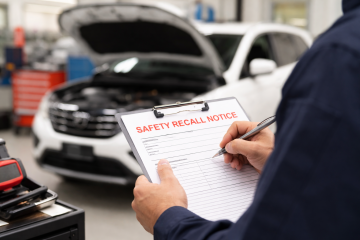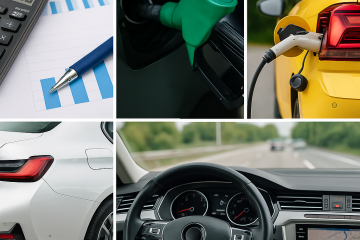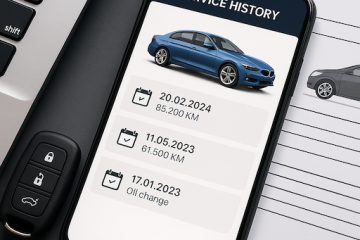Market Insight: Reap the Rewards of Responsible Retailing

In the ever-evolving auto retail landscape, what can used car dealers do to help drive EV adoption and future profitability? One Auto API CEO Mark Fretwell takes a closer look…
In recent weeks we’ve seen the clocks spring forward, but has the seasonal shift heralded any significant moves in the automotive retail sector?
Well, starting with new car registrations it would seem it’s very much business as usual with the Society of Motor Manufacturers and Traders (SMMT) reporting that new car registrations rose 10.4% in March – the 20th consecutive month of growth and the best March since 2019.
An encouraging update albeit the growth is still being fuelled by fleet investment bouncing back after a period of constrained supply. Private registrations actually fell by 7.7% due to what the SMMT believes is a combination of ‘low growth, weak consumer confidence and high interest rates’.
Of particular note are the sales figures for battery electric vehicles (BEVs) which, despite reaching their highest ever recorded levels (again driven by fleet uptake), actually saw market share drop by a single percentage point year on year to 15.2%.
So BEVs are clearly lagging way behind the 22% sales target that manufacturers need to hit under the ZEV mandate and this will inevitably result in incentives – in a range of guises – to boost that BEV market share closer to where they need to be.
Interestingly, figures from Auto Trader, reported just this week, show that three in four new cars advertised on the platform have a discount applied to them, which is a 15% uplift year on year. Looking specifically at electric vehicles, this discount averages out at around 11% – underlining the pressure that this market segment is feeling as supply outstrips demand.
Alongside these discounts, pre-registrations are skyrocketing – with Auto Trader reporting a 52% increase in pre-registrations in March compared to the same time last year.
So, it’s certainly fair to say the new car ‘push’ is gaining considerable momentum.
What about the used car market?
Well, right now, the key phrase from a used car retail perspective is speed.
Recent figures from MOTORS show increased stock turn across all used car retailing sectors in March:
- Car supermarkets stood at just 21 days – down from 29 in February
- Franchised dealers averaged 29 days – down from 34 in February
- Independent dealers improved to 49 days – down from 56 days in February
Auto Trader figures aligned with this trend too and they also reported stable prices and robust demand from consumers.
This accelerated stock turn should come as no surprise.
Faced with the fact that used cars are still in fairly short supply and that funding costs have increased substantially, many dealers are operating with a smaller inventory of used vehicles than they may have done traditionally.
So the focus has to be on maximising stock turn – reducing the time vehicles are on physical or virtual forecourts as much as possible to drive revenue and profit quickly then create capacity for new stock.
With such a short window in which to sell a car, the winners in this game are those dealers that are using the technology and data available to them to identify the right stock for their market and keep those vehicles competitively priced at all times.
If your pricing is out for just a week, or even a couple of days, that equates to extra days in stock which have a quantifiable cost in interest and depreciation. Used car retailing is a game of fine margins and incremental improvements deliver large gains for those who operate at scale.
Quite simply, every day counts.
And, if any used car retailers are looking for some fast movers then, according to the recent reports, take a look at the Seat Leon – a petrol plug-in hybrid that was the fastest-selling used car in recent weeks with an average sale time of just 10 days.
Hybrids, it would appear, are rapidly becoming the stars of the show in the used market.
Online remarketing specialist Autorola sold more used hybrids in Q1 than any other quarter in its history which it says suggests drivers are refraining from going fully electric – instead opting for the flexibility of hybrids.
And it’s this nervousness around EVs that will need to be addressed in the coming months to make the used EV marketplace of the future as strong as it can be.
While there is inevitably a lag between new car market dynamics impacting the used car landscape, one thing is for certain – today’s forced new EV volume will inevitably be tomorrow’s forced used EV volume.
If you are a used car retailer, the EVs are coming and there’s nowhere really to hide.
But why hide anyway?
Now is the time to build your reputation and stand out from the crowd for the right reasons – going above and beyond what the industry is doing in general to help customers make the transition to electric.
And your secret weapon is education – building consumer confidence through knowledge, transparency and reassurance about what EV ownership really entails.
Take used electric vehicle performance, where the story is overwhelmingly positive with regards to how used EVs perform versus how they truly performed when they were new.
Notice the deliberate use of the word ‘truly’. As anyone with an electric vehicle will tell you, performance can vary quite dramatically under different driving conditions.
Let’s take a closer look at an Audi Q8 e-tron, for example.
On a full battery charge, “real range” figures from EV Database show that if you’re driving this vehicle in the city and it’s warm you can expect a range of 375 miles. However, if you’re travelling on the motorway and it’s cold, you can expect a range of 190 miles – just shy of a 50% drop.
Then throw public vs domestic charging into the mix.
If you’re in the same Audi Q8 e-tron on a cold motorway journey and you’ve charged at home, you can expect a cost of 3.5p per mile which is certainly cost effective but, as soon as you go to the public charger, this could increase to almost 40p a mile – a more than tenfold increase.
So a huge spectrum of performance metrics that people really should understand ahead of making a purchase decision to be sure the EV they are considering will fit their lifestyle and daily requirements.
If, as a retailer, you can better educate buyers about the performance of an EV then not only are you proving your value as an honest business, you are ensuring that if someone goes on to buy that vehicle from you, then they are truly ready for it and less likely to return it.
This is the real impact of education.
Empowering people to make informed decisions where they feel in control and get the outcome they are looking for from their investment.
This positive experience then turns into glowing endorsement of both owning an EV and the dealer that sold it to them.
And the more people that do that, the brighter the future will look for the used EV market and the starring role you can play within it.
Here to help – let’s talk.
If you have any questions about how you can use data to position your business for future success, we are here for you. Click here to schedule a free 30-minute consultation – we will use the time to understand your business, project and goals to see how we can add value.


